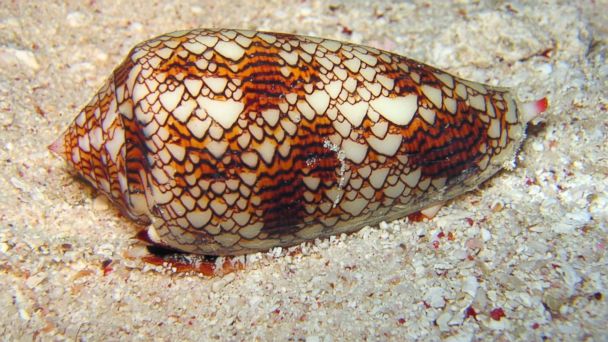Marine Creature May Offer 'Reef Relief' for Chronic Pain

Cone Snail venom might be used as an effective pain reliever. Credit: Richard Ling/Wikimedia
The slow and steady cone snail may hold the secret to safe and reliable management of chronic nerve pain.
Unlike acute pain that is triggered by a specific injury, neuropathic pain kicks in when the nervous system itself is damaged. Often associated with diseases such as diabetes and multiple sclerosis, it's a chronic condition that can last for years or even decades.
Treatments have serious side effects and provide relief to only about one-third of patients, according to David Craik of the University of Queensland in Australia.
RELATED: Dying Boy to Get Unapproved Drug After Family's Plea
That's where the cone snail oozes into the picture. In a new study presented at a recent American Chemical Society meeting in Dallas, Craik said small proteins known as "conotoxins" found in the mollusk's venom could be used to develop an oral medication for chronic nerve pain that could potentially be stronger than morphine, with fewer side effects and a lower risk of addiction.
The snails use venom to stun their pray, Craik explained. But in humans it appears to have a soothing effect. If the proper conotoxins can be isolated, Craik said, it's possible they might provide the ingredients for a highly effective oral medication.
Ziconotide, the one drug derived from cone snail venom and approved for human use, must be injected into the lower spine.
Already, tests on rodents found a prototype drug derived from conotoxins is 100 times more potent than morphine and other standard drugs typically used to treat chronic pain.
"We don't know about side effects yet, as it hasn't been tested in humans. But we think it would be safe," Craik said in a presentation to the American Chemical Society.
He said human trials could begin in as soon as two years from now.
Cornell University snail scientist Marla Coppolino said that snails have been a hot topic of medical research for the past decade. Among other things, scientists are also studying snail and slug slime to see whether it can be used to create new medicines for osteoporosis and for suture materials used in surgery, she said.